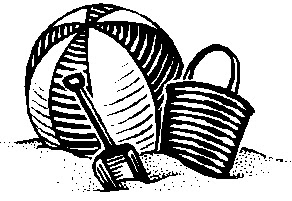While some amount of boredom is a common complaint, tweens who claim to be bored all the time are at an increased risk of smoking, drinking, getting drunk and using other drugs to fill their time. Combine boredom with the fact that youth are already at increased risk for experimenting with substances during the summer months and the potential for danger is evident.
For parents, supervision is key and must be a part of the equation. As research shows, unsupervised youth are three times more likely to use alcohol or other drugs. If you cannot physically be present at home, call on a neighbor or friend to stop by or hire a part-time “buddy-sitter” to be there with your tween (and randomly call or text to check in with your child).
While downtime is important, it is also a good idea to help your child establish some structure to their summer schedule.
Consider These Boredom Busters:
- Help your child find a job like babysitting, dog-walking, washing cars, or mowing lawns.
- Look for volunteer opportunities through local churches, soup kitchens, senior centers, or animal shelters.
- Help your tween discover a new interest like photography, writing, drama, or art.
- Enroll your child in a summer clinic or camp (sports clinics, dance camps, wilderness camps, etc. take place all summer long).
- Encourage outdoor exercise like swimming, running, riding bikes, and park-hopping with friends.
- Coordinate with other parents to organize a group outing to a water park, amusement park, sporting event, concert, museum, or library.
Know! is a program of Drug-Free Action Alliance with funding provided by the United Way of Central Ohio to empower parents to raise their children substance-free. Presented by Holcomb Behavioral Health Systems and funded by the Delaware County Office of Behavioral Health Division of Drug and Alcohol.




